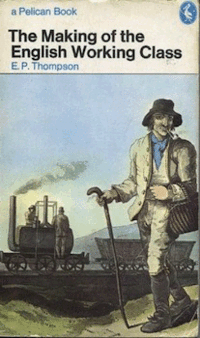#TheMakingOfTheEnglishWorkingClass
The Making of the English Working Class
The Making of the English Working Class is an influential and pivotal work of English social history, written by E. P. Thompson, a notable 'New Left' historian; it was published in 1963 (revised 1968) by Victor Gollancz Ltd, and later republished at
Read More..
by E. P. Thompson
Ratings
Likes
Reviews
Popularity
Ranks
This #hashtag is not ranked yet.






